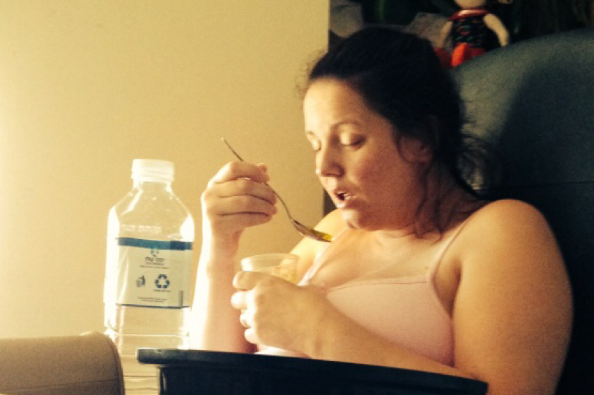Human beings are complex. I’m sure that we experience many
more emotions than the English language has words for. Such as the specific guilt
for that time when you said something well-meaning but with unintended consequences
to Helen because terminal illness is difficult and we don’t all get it right. Or
the deep regret that you couldn’t go to Berlin because you weren’t even in the
UK but you still think you should have done it even when you couldn’t. Or the disbelief
her death is real even you have evidence to demonstrate it’s very real. Or the
deep-seated conviction that Marlow, the daft minded cat, needs a careful and
slow worded explanation of what’s happened because you know he’s not smart and
won’t get that Helen is gone. Then there’s
the special loneliness that comes even when surrounded by people, as opposed to
the comforting feeling of loneliness when you’re in nature but you can feel the
spirit of something around you.
With all those emotions and more before I’d even had a morning
orange juice I knew it was going to be a tough morning. What would Helen Bacon
do? Helen of course would get on the bike outside the back door of my cottage
and ride it.
So that’s what I did.
 |
| My steed: at the border for Laos, which I guess is a boat for locals only. |
I went and checked the tyres. I checked the brakes. Thanks
Liz Clarke who has trained me on basic mechanics - twice 😊
I had to do this the idiot’s way because I can never recall which is my back brake
and which is my front. I fixed the back brake which was rubbing (thanks Sarah Roberts
for years of advice for my hybrid) but the bike wheel was not being stopped by
anything no matter which lever I was pressing. At least I recalled the back brake
is really important so I was conscious of what to do so I didn’t go head over
handlebars. I contemplated setting it up properly but there was too much rust
involved and I was only going out for a wee pootle.
And off I went.
I cycled past wooden houses, clucking chickens, old ladies
on scooters who were twisting around to look at the farang (foreigner).
Past wooden signs stating each village’s population, number of men and women.
Past small children amusing themselves in front yards. Past faded signs in
Chinese from the Yunnan descendants. Past temples with signs in Thai and Laotian
and beautiful flowers, wooden houses and dogs with tails set to permanent wag. I
felt some of those clunky heavy awkward emotions fall off me as I cycled. I
thought “I bet this is why Helen loves riding”. I’ve always hated riding and
you can attribute most of my rides to Bacon made me do it, or I was training
for an Ironman (because Bacon motivated me to do it but that’s anotherstory). But I actually found some levity
in my heart through riding.
 |
| I cycled past my preferred past-time, hammocking. |
I was confident enough to come out of the villages and to
take to the main roads (well it was a left turn!) and started reminiscing about
all the good cycle moments with Helen. The time I fell off in the carpark looking
for the start of the Ironman Staffs bike route. I thought, “gosh no one has
that memory anymore” but then I remember Helen laughing as I lay on the floor,
my lycra jumbled up with aluminium. “That bloke in the white van having his breakfast
is pissing himself!” she enjoyed telling me. So there is a witness still!
That time she co-erced me to go on an “easy Glow ride” and
I was terrified but Helen convinced me would be fine (she is very good at this).
She mentioned someone was on a trike and I thought it was a heavy and cumbersome bike - but that someone
turned out to be GB Paralympian Hannah Dines who beasted up the final hill of
our ride while I walked and pushed and probably moaned!😊
The time we both cycled over Autumn Barlow’s head because poor
signalling up ahead meant a collision in a chain, at a roundabout in West
Lancashire. It was actually quite traumatic at the time, not least for Autumn,
but I’m pleased that two great friendships came out of that experience.
My favourite ride was the one we didn’t do on the second day
of an Arse weekend and we went for a walk instead, found a dead lamb, comforted
Glynis’s Spanish exchange student. I regret I don’t have many photos of Helen
in that walk. I didn’t realise she was going to be such an influence in my life
back then!
 |
| Good road surface and a marked cycle lane, makes me think of Nadia :) |
I didn’t use my Strava for the whole of this
morning’s ride – I only started recording when I realised I was finding
levity and wanted to record the ride for Helen but I reckon I did about 10 miles.
For someone who really doesn’t like cycling and who was probably last on a bike
because Helen made me do it, it was a big deal. I was proud of getting out,
proud to have known her. Inspired to see the joy in cycling. I’ve even named a
little segment
after her. She’s gone but she’s still having an influence: Helen Bacon made me
do it.
PS I spotted a fun run being organised along the River this Sunday and I know what Helen would do...
 |
| Helen and Mike after Salford triathlon which she did during chemo treatment. |

